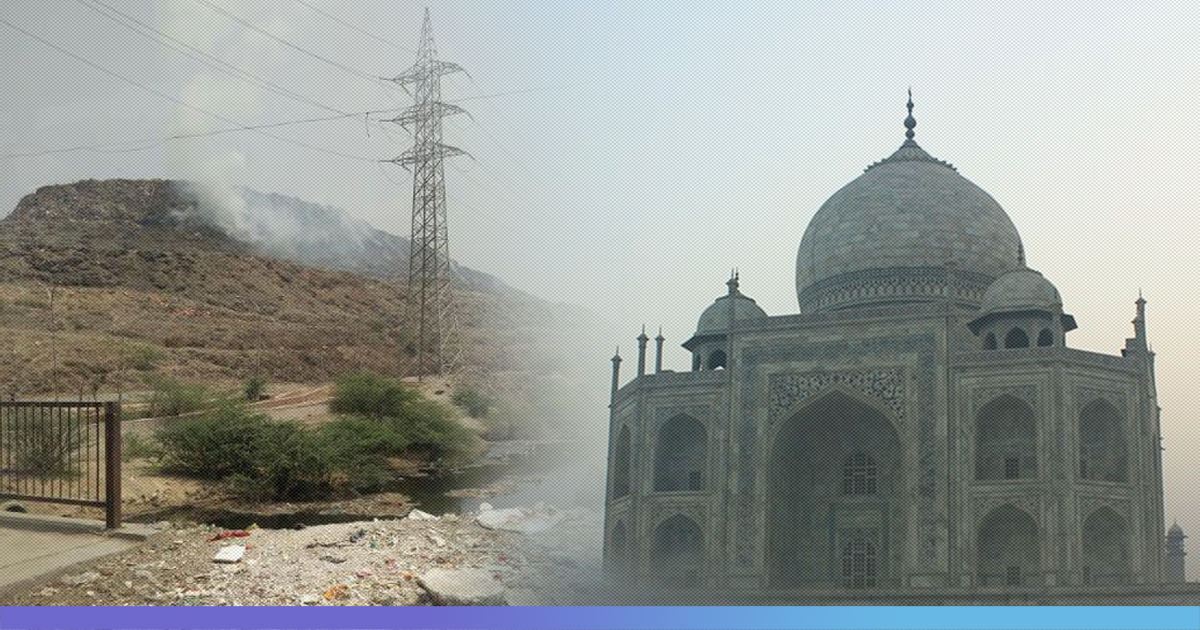The Ghazipur landfill, India’s tallest rubbish mountain in New Delhi, is set to rise higher than the Taj Mahal by 2020.
A common sight on the eastern fringe of the national capital, several birds of prey, including hawks, can be seen hovering over the towering garbage dump. Over the large expanse of smoking filth, rats, dogs and stray cows can be seen wandering around.
The landfill takes up the area of over 40 football pitches and rises almost 10 metres a year. In fact, it is already more than 65 metres (213 feet) high, according to East Delhi’s superintendent engineer Arun Kumar.
If it keeps growing at the current rate, it will grow higher than Agra’s iconic Taj Mahal by next year.
Last year, the Supreme Court warned, that in order to alert passing jets, red warning lights will soon have to be put on the garbage mountain.
The Dump Leads To Several Health Issues
Ghazipur opened in 1984 and reached its capacity in 2002, by which time it should have been closed. However, waste from all over the city comes in hundreds of trucks each day.
In 2018, a part of the garbage hill collapsed after heavy rains, resulting in the death of two people. After the deaths, dumping was banned. However, the ban lasted only for a few days as authorities could not come up with an alternative.
Methane gas coming from the dump often sparks fire, and it takes days to extinguish. Methane can become deadly when mixed with the atmosphere.
Further, a black toxic liquid called Leachate oozes from the garbage dump into a local canal.
The poisonous smell from the dump makes breathing difficult for those who live nearby.
Protests have failed to ring a bell with the govt, and citizens are now fleeing the district.
“I often pass the garbage dump while travelling, and the foul odour is unbearable. It is hard to even go near the area, so I can only imagine what the people who live in the vicinity have to go through,” Amit Banerjee, a resident of Delhi told The Logical Indian, “it has become a very serious issue and there will be dire consequences, if it is not tackled at the earliest.”
Next to the dump, there is a plant that recycles waste into energy, burning trash and releasing poisonous smoke, making life miserable for the people around.
The garbage dump can lead to severe health issues for those who live within the 5 km range.
Indian cities are among the largest garbage producers of the world, with 62 million tonnes of waste being generated annually. This could rise to 165 million tonnes by 2030, according to government figures.
In addition to the garbage dumps, heavy industries, vehicular emission and burning of farming residue, all have contributed to worsening the national capital’s air.
Although waste management rules were introduced in 2016, the Delhi government has been repeatedly accused by watchdogs, Supreme Court and activists for not tackling the waste crisis seriously.
Also Read: ‘Mount Everest Of Garbage’ In Ghazipur, Delhi Is Causing Respiratory & Other Sickness Among Locals











